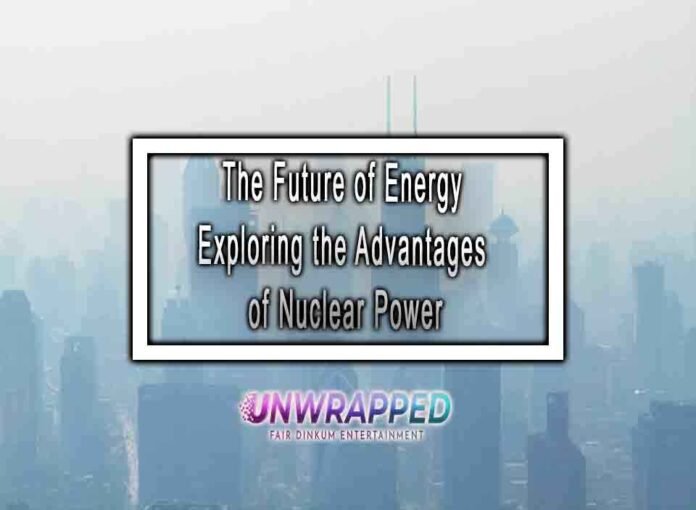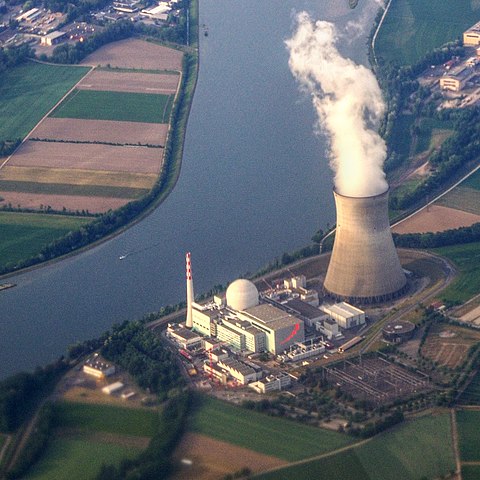The future of energy involves exploring a mix of sustainable and efficient sources to meet the increasing global demand while mitigating environmental impacts. Nuclear power is one of the technologies often considered in discussions about the future energy landscape. Here are some advantages associated with nuclear power:
Low Greenhouse Gas Emissions:
- Advantage: Nuclear power plants produce electricity with minimal greenhouse gas emissions during operation. Unlike fossil fuels, nuclear power does not release large amounts of carbon dioxide (CO2) and other pollutants into the atmosphere.

- Advantage: Nuclear power plants produce electricity with minimal greenhouse gas emissions during operation. Unlike fossil fuels, nuclear power does not release large amounts of carbon dioxide (CO2) and other pollutants into the atmosphere.
High Energy Density:
- Advantage: Nuclear energy has a high energy density, meaning that a small amount of nuclear fuel can produce a significant amount of electricity. This results in a more compact energy source compared to many renewable sources.
Continuous Power Generation:
- Advantage: Nuclear power plants can provide a continuous and stable source of electricity, unlike some renewable energy sources, such as solar and wind, which are intermittent and dependent on weather conditions.
Reduced Dependence on Fossil Fuels:
- Advantage: By diversifying the energy mix with nuclear power, nations can reduce their dependence on fossil fuels, contributing to energy security and helping to address concerns related to fossil fuel depletion and geopolitical issues.
Base Load Power Generation:
- Advantage: Nuclear power is well-suited for providing base load power, which is the minimum amount of electricity needed to meet the continuous demand. Base load power plants operate consistently to meet the constant part of the demand curve.
Long Operating Life of Reactors:
- Advantage: Nuclear reactors can have a long operational life, often exceeding 40 years with proper maintenance and upgrades. This longevity can contribute to stable and predictable energy production.
High Energy Conversion Efficiency:
- Advantage: Nuclear power plants have high energy conversion efficiency, meaning they can convert a significant portion of the fuel’s energy into electricity. This efficiency contributes to the overall effectiveness of nuclear power as an energy source.
Technological Advancements:
- Advantage: Ongoing research and development in nuclear technology, including advanced reactor designs, can lead to improved safety, efficiency, and reduced nuclear waste. Innovations such as small modular reactors (SMRs) are being explored for their potential benefits.
Decentralized Power Generation:
- Advantage: Nuclear power can provide decentralized power generation, allowing for the development of smaller-scale nuclear reactors that are suitable for remote or off-grid locations, enhancing energy access.
Job Creation and Economic Benefits:
- Advantage: The nuclear industry can contribute to job creation and economic growth. The construction and operation of nuclear power plants, as well as the associated supply chain and research activities, can stimulate local economies.
Despite these advantages, it’s crucial to acknowledge the challenges associated with nuclear power, including concerns about safety, radioactive waste management, and the potential for nuclear weapons proliferation. Public perception and regulatory frameworks also play significant roles in shaping the future of nuclear energy. As technology advances and safety measures improve, nuclear power may continue to be part of the energy mix, contributing to a more diverse and sustainable energy future.











